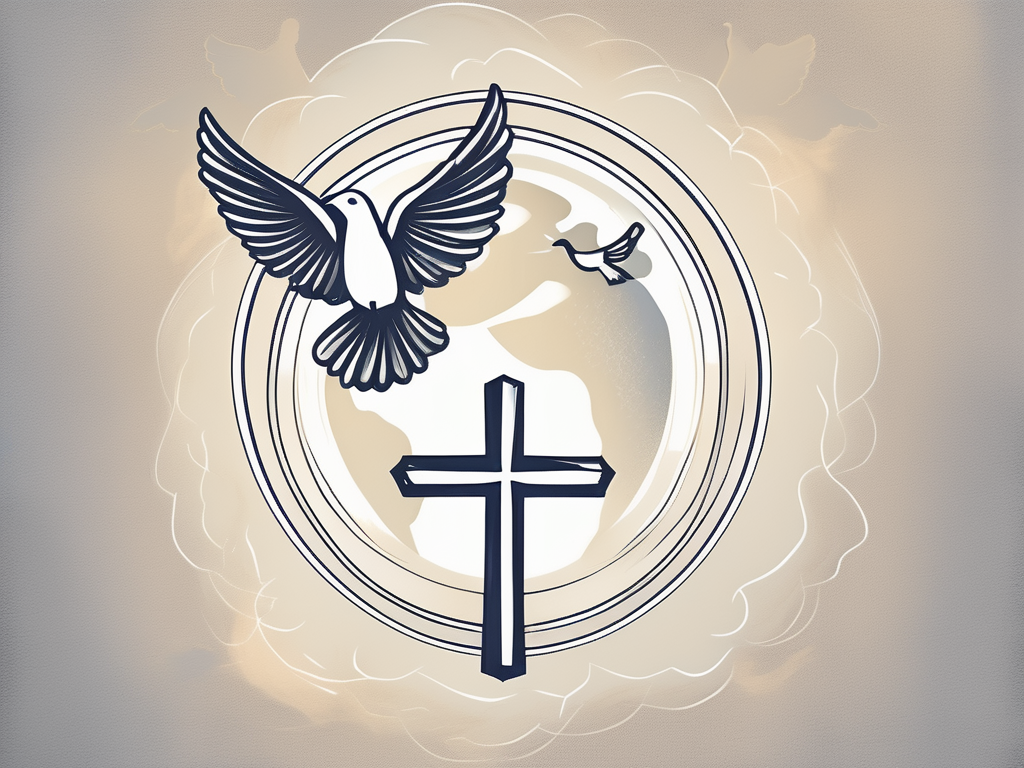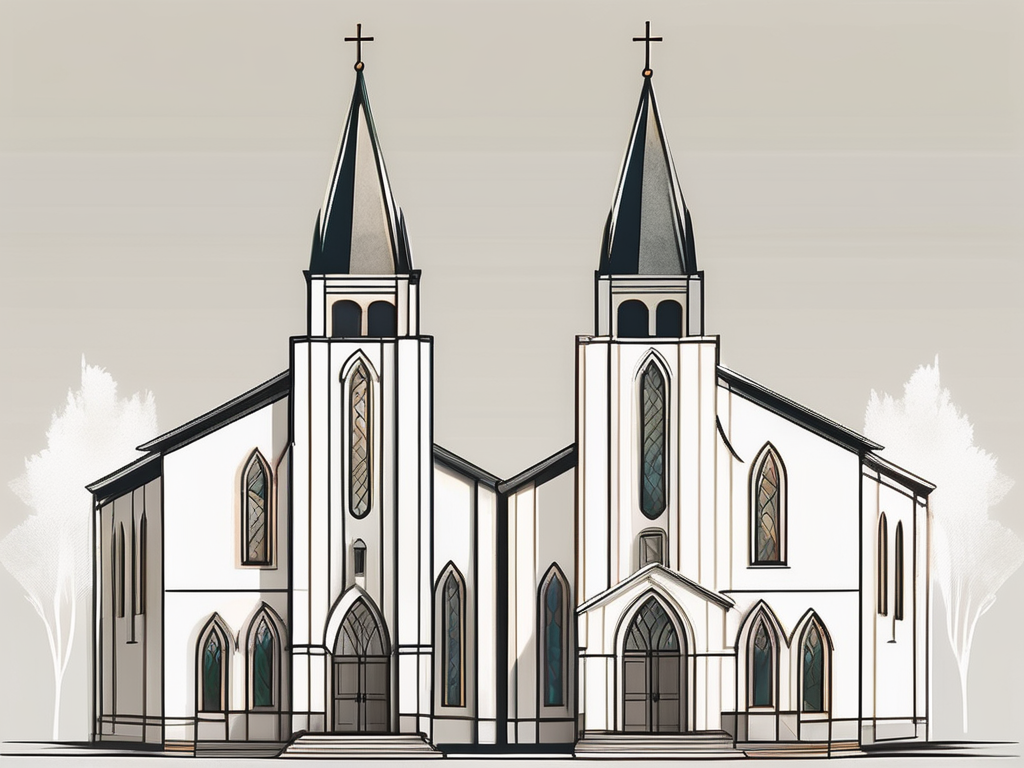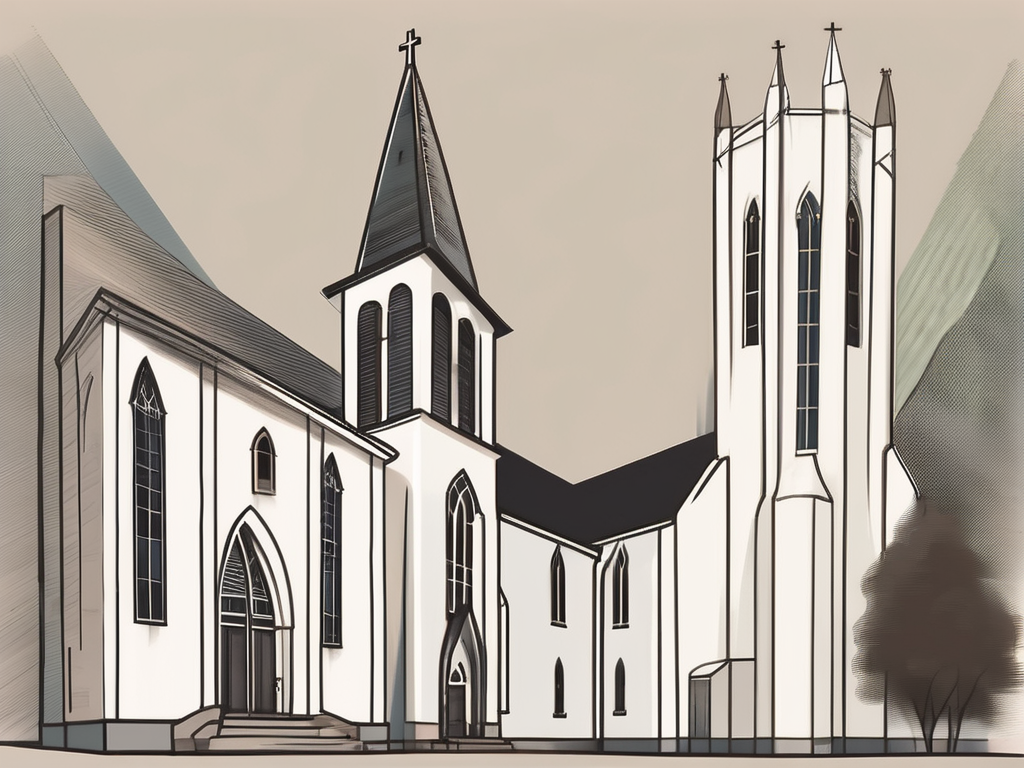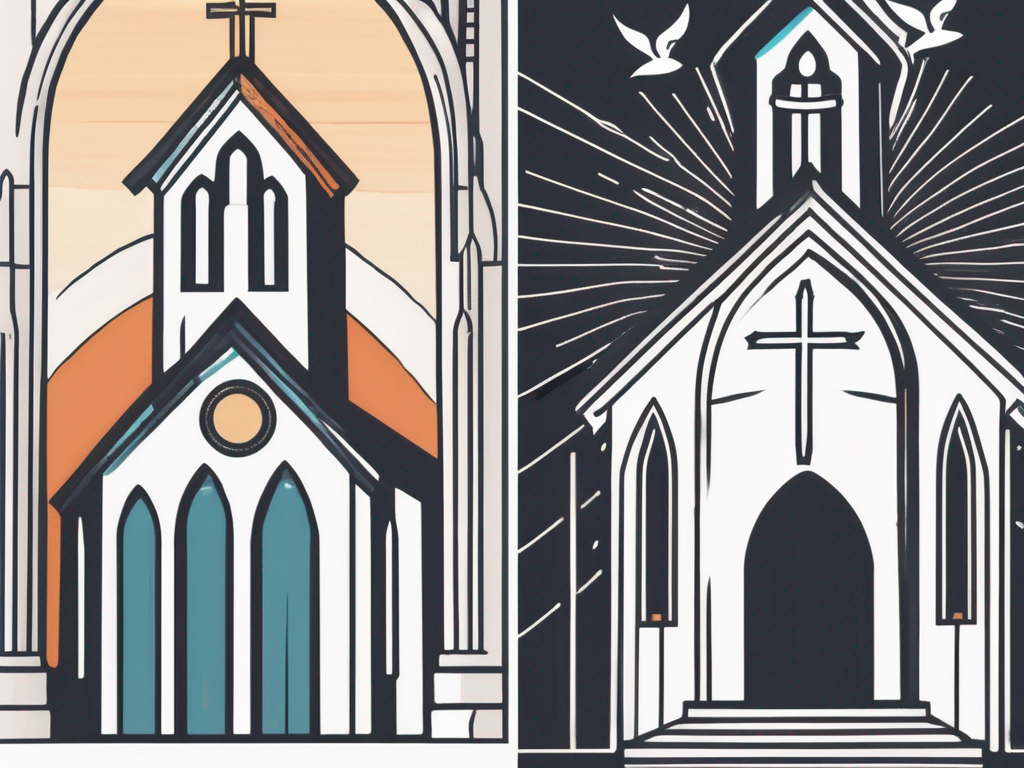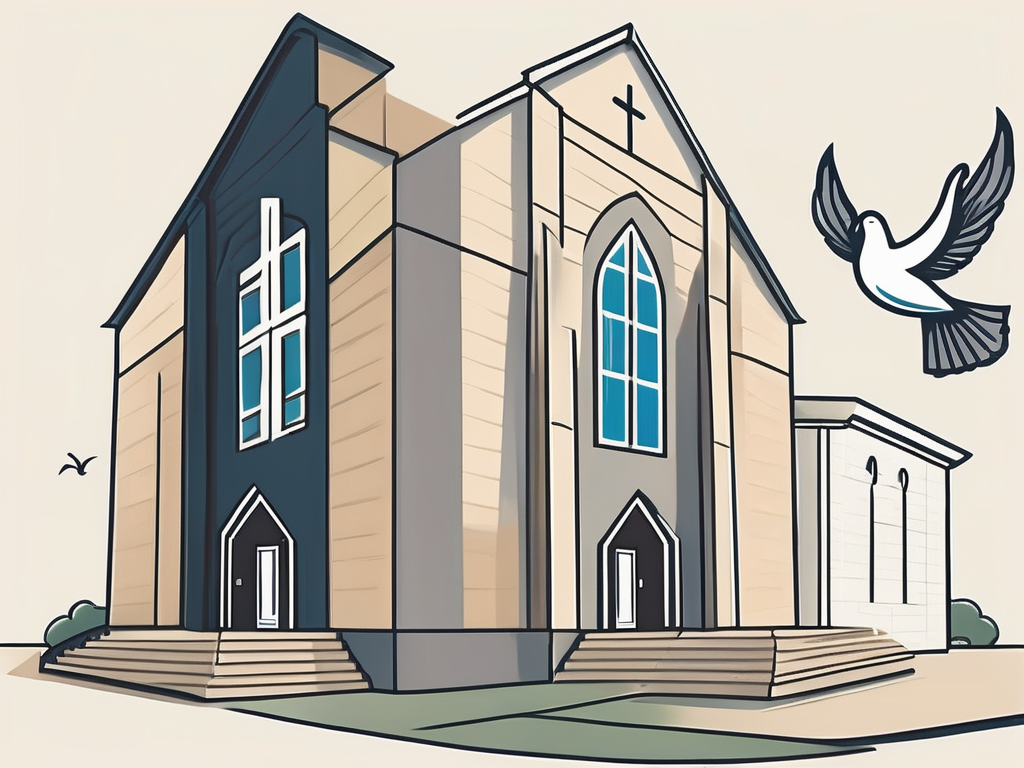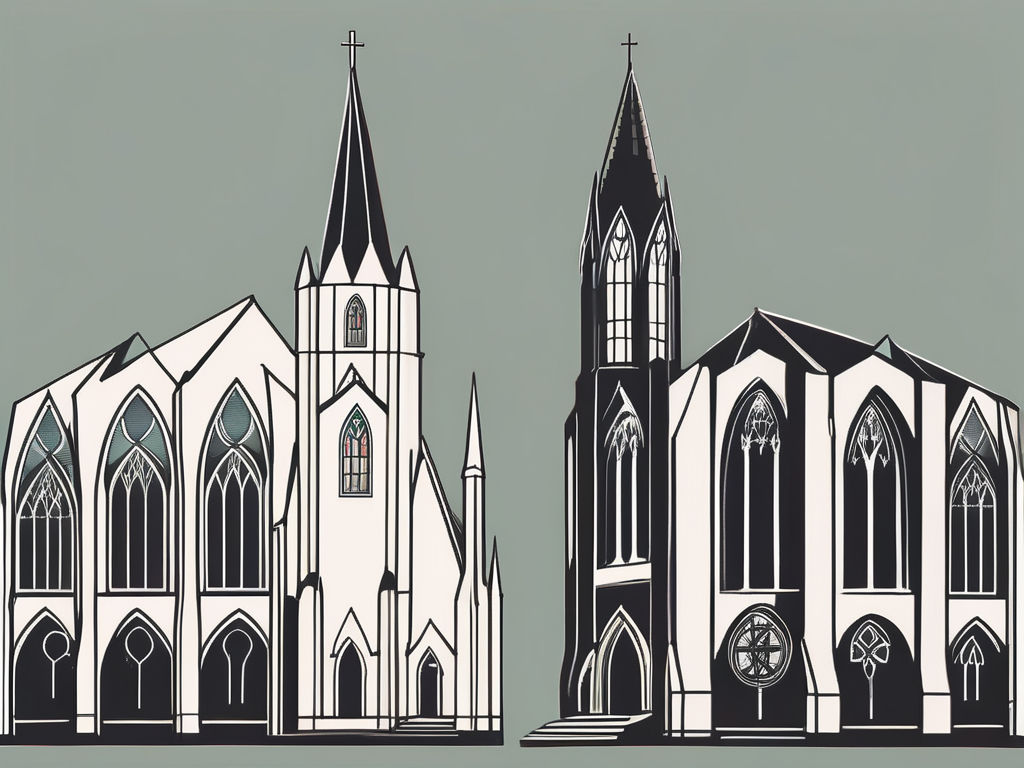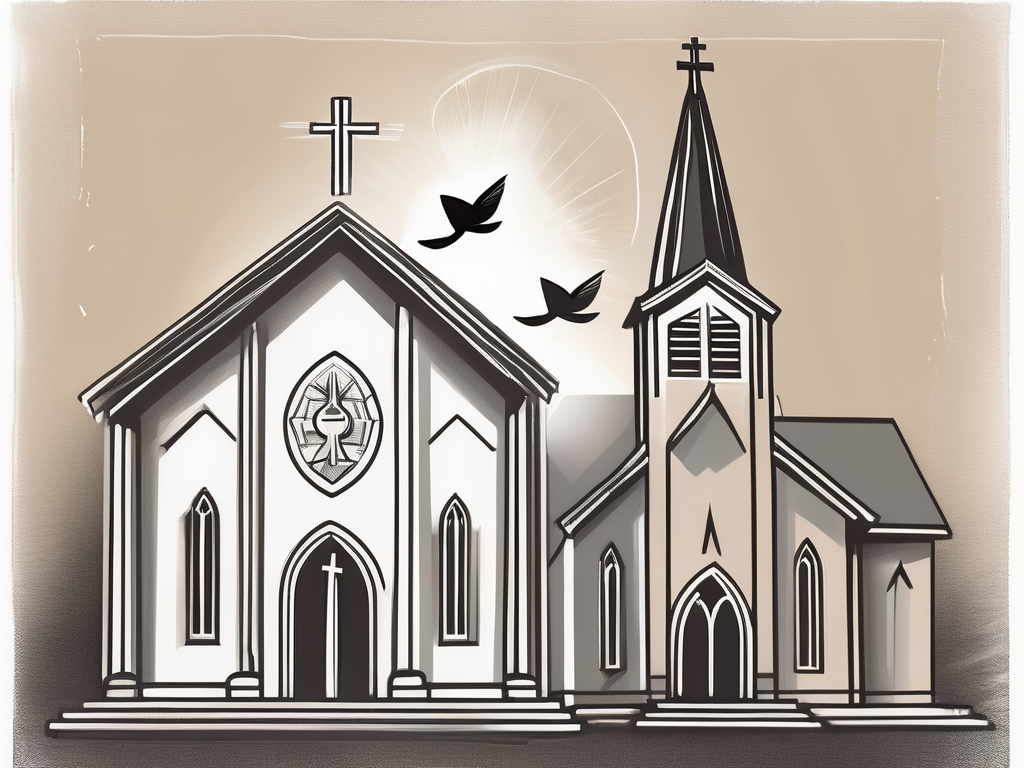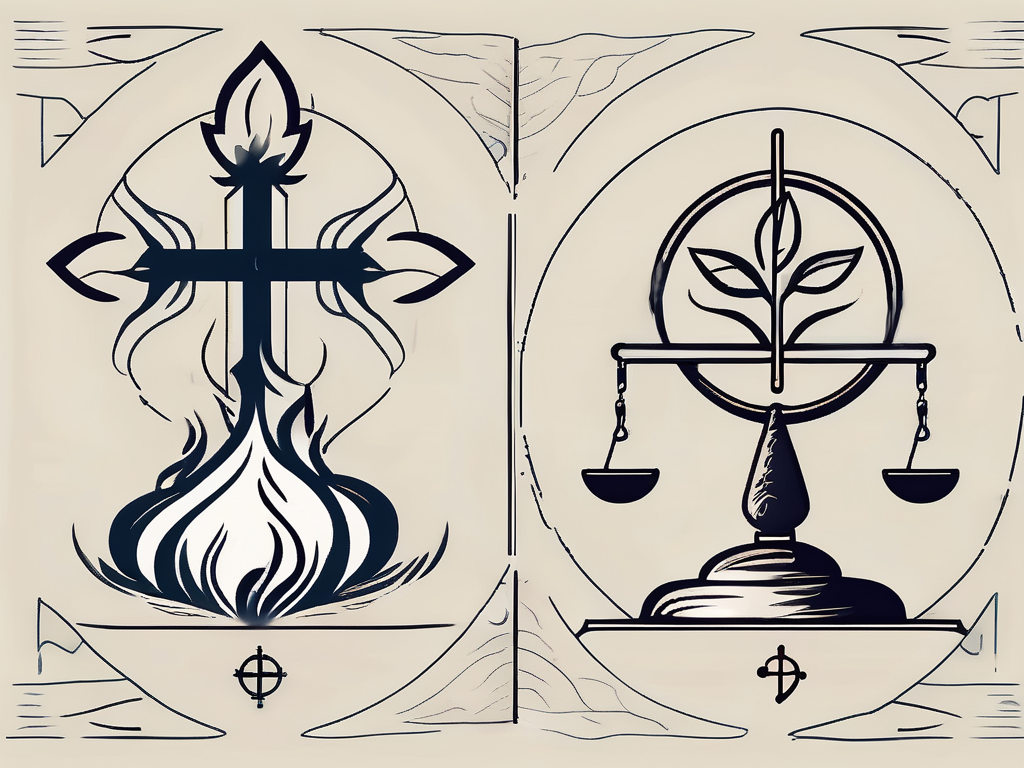Presbyterians have a unique set of beliefs when it comes to what happens after death. Their views on the afterlife are deeply rooted in their understanding of Presbyterianism, their core beliefs, and their perception of Jesus Christ’s role in salvation. In addition, Presbyterian funeral rites and traditions play a significant role in how they cope with and navigate the loss of a loved one. Let’s delve deeper into these intriguing aspects of Presbyterian beliefs surrounding death and the afterlife.
Understanding Presbyterian Beliefs
Before we explore Presbyterian beliefs about death and the afterlife, it’s crucial to understand the origin and evolution of Presbyterianism. This Protestant Christian denomination traces its roots back to the Reformation era and has evolved over time to encompass various beliefs and practices.
In the 16th century, Presbyterianism emerged as a movement within the broader Protestant Reformation. It was heavily influenced by the teachings of John Calvin, a French theologian known for his emphasis on the sovereignty of God and the doctrine of predestination. Calvin’s ideas resonated with many reformers, leading to the establishment of Presbyterian churches in Scotland, England, and other parts of Europe.
Presbyterians believe in the authority of the Bible as the inspired word of God. They adhere to the principle of sola scriptura, which means that they place utmost authority in the Bible alone. This belief stems from the Reformation’s rejection of the Catholic Church’s claim of equal authority for scripture and tradition.
Presbyterians interpret scripture through the lens of their theological traditions, which shape their understanding of significant theological concepts, including the afterlife. These traditions are rooted in the teachings of John Calvin, as well as other influential figures in Presbyterian history.
One key aspect of Presbyterian belief is the concept of predestination. Presbyterians believe that before the creation of the world, God chose certain individuals to receive salvation. This belief is based on passages in the Bible, such as Ephesians 1:4-5, which states, “For he chose us in him before the creation of the world to be holy and blameless in his sight. In love he predestined us for adoption to sonship through Jesus Christ, in accordance with his pleasure and will.”
While the concept of predestination can be difficult to comprehend, Presbyterians believe that it highlights the sovereignty of God and the dependence of humanity on God’s grace. They believe that salvation is not earned through good works or personal merit, but rather it is a gift from God that is freely given to those whom He has chosen.
Presbyterians also emphasize the importance of the church community in their beliefs. They believe that the church is the body of Christ, and through its sacraments and worship, believers can experience God’s presence and receive His grace. The church plays a vital role in nurturing and guiding individuals in their faith journey.
When it comes to beliefs about death and the afterlife, Presbyterians hold a range of views. Some believe in the concept of soul sleep, which suggests that after death, the soul enters a state of unconsciousness until the resurrection. Others believe in an immediate transition to heaven or hell upon death. There is no official doctrine on this matter, and individual Presbyterians may hold differing beliefs based on their interpretation of scripture and theological traditions.
In conclusion, Presbyterian beliefs have evolved over centuries, shaped by the teachings of John Calvin and other influential figures. They place utmost authority in the Bible and interpret scripture through the lens of their theological traditions. The concept of predestination and the importance of the church community are central to their beliefs. When it comes to death and the afterlife, Presbyterians hold a range of views, reflecting the diversity within the denomination.
Presbyterian Beliefs About Death and Afterlife
Death, as understood in the context of Presbyterianism, is seen as a transition from earthly life to eternal life. Presbyterians believe that human beings were created with a body and a soul, and that when death occurs, the soul separates from the physical body.
The Concept of Death in Presbyterianism
In Presbyterianism, death is not viewed as the end but rather a gateway to the eternal realm. It is understood that death is a result of the Fall, where sin entered the world. However, through Jesus Christ’s sacrifice, death is conquered, and believers are granted eternal life.
Presbyterians believe that death is a natural part of the human experience and that it should be accepted as a reality. They view death as a passage from earthly limitations to spiritual freedom.
When a Presbyterian passes away, their loved ones often gather to celebrate their life and mourn their loss. This gathering, known as a funeral or memorial service, provides an opportunity for family and friends to share stories and memories of the deceased. It is a time of reflection and remembrance, as well as a chance to find comfort and support in the community.
During the funeral service, a Presbyterian minister will typically deliver a sermon that offers words of hope and reassurance. The minister may draw upon scripture passages that speak to the promise of eternal life and the comfort of God’s presence. Prayers are offered for the deceased and their loved ones, asking for strength, peace, and healing in the midst of grief.
Following the service, it is common for Presbyterians to gather for a meal or reception, where they can continue to share memories and support one another. This time of fellowship is an important part of the grieving process, as it allows individuals to lean on each other and find solace in their shared experiences.
The Presbyterian View of Heaven and Hell
Heaven and hell, as understood in the Presbyterian faith, are believed to be real places. Heaven is seen as a state of eternal presence with God, filled with joy, peace, and perfect communion. It is a place where believers are reunited with their loved ones who have also journeyed into the afterlife.
Presbyterians find comfort in the belief that heaven is not just a distant, abstract concept, but a tangible reality where they will experience the fullness of God’s love and grace. It is a place of eternal rest and fulfillment, where all pain and suffering will be washed away.
On the other hand, hell is understood as a state of eternal separation from God. It is seen as a place of spiritual anguish and the consequence of rejecting God’s grace. However, it is important to note that Presbyterian views on hell vary, with some theologians embracing the concept of universal salvation, which suggests that ultimately all will be reconciled with God.
Presbyterians believe that the afterlife is not solely determined by one’s actions on earth, but by God’s mercy and grace. They hold onto the belief that God’s love is all-encompassing and that through Christ’s sacrifice, redemption is available to all who seek it.
In contemplating the afterlife, Presbyterians often find solace in the assurance that death is not the end, but a continuation of their journey with God. This belief provides comfort and hope, especially in times of grief and loss.
Presbyterians also emphasize the importance of living a faithful and purposeful life on earth, as it is seen as a preparation for the eternal life to come. They strive to follow the teachings of Jesus, seeking to love God and their neighbors, and to make a positive impact in the world.
Overall, Presbyterian beliefs about death and the afterlife offer a framework for understanding the mysteries of life and finding meaning in the face of mortality. It is a faith that embraces both the reality of death and the hope of eternal life, providing comfort and guidance for believers as they navigate the journey from this world to the next.
The Role of Jesus Christ in Salvation
Central to Presbyterian beliefs is the understanding that salvation comes through faith in Jesus Christ. Presbyterians view Jesus Christ as the Savior and believe in His resurrection, which conquered sin and death.
Jesus Christ, the central figure in Christianity, holds a significant role in the salvation of humanity. His teachings, miracles, and ultimate sacrifice on the cross are considered pivotal in the redemption of mankind. Presbyterians, like many other Christian denominations, hold a deep reverence for Jesus and acknowledge Him as the source of salvation.
The Presbyterian Understanding of Salvation
Presbyterians believe that salvation is a gift from God, given by grace through faith. It is not something that can be earned through human efforts or good works. Rather, it is a result of accepting Jesus Christ as Lord and Savior and having a personal relationship with Him.
Salvation, in the Presbyterian understanding, is not a transaction or a reward for good behavior. It is a transformative process that begins with an individual’s faith in Jesus Christ. This faith is not merely an intellectual acceptance of His existence but a deep trust and reliance on Him for forgiveness and eternal life.
They believe that through Christ, individuals can experience forgiveness of sins and receive the promise of eternal life in the presence of God.
Salvation, according to Presbyterian theology, is not limited to a one-time event but is an ongoing journey of growth and sanctification. It involves a continuous surrender to the guidance of the Holy Spirit and a striving to live according to the teachings of Jesus Christ.
The Significance of Jesus Christ in Afterlife
In Presbyterian theology, the role of Jesus Christ extends beyond His actions in His earthly ministry. Christ’s sacrificial death and resurrection are believed to have redeemed humanity and opened the pathway to eternal life.
Presbyterians find hope and comfort in the knowledge that Jesus Christ has conquered death, offering the promise of resurrection and eternal life for believers. Through their faith in Christ, they trust in the assurance of life after death.
The belief in Jesus Christ’s victory over death brings solace to those facing the loss of loved ones. It offers the assurance that death is not the end but a transition into a glorious and everlasting existence in the presence of God.
Furthermore, the significance of Jesus Christ in the afterlife is not limited to individual salvation. Presbyterians believe in the concept of the communion of saints, where believers are united with Christ and with one another in a spiritual bond that transcends time and space.
Through Jesus Christ, believers have the hope of being reunited with their loved ones who have gone before them, forming an eternal community of love, worship, and fellowship in the presence of God.
Overall, the role of Jesus Christ in salvation is central to Presbyterian beliefs. His life, death, and resurrection hold profound significance, offering a path to forgiveness, eternal life, and a deepening relationship with God. Presbyterians find comfort, hope, and purpose in their faith in Jesus Christ, trusting in His redemptive power and the promise of a glorious afterlife.
The Presbyterian Funeral Rites and Traditions
Presbyterian funeral rites and traditions reflect their beliefs surrounding death and the afterlife. These customs provide comfort and support to grieving families as they process the loss of their loved ones.
The Purpose and Process of Presbyterian Funerals
In Presbyterianism, funerals are seen as an opportunity to celebrate the life of the deceased and acknowledge the hope of resurrection in Jesus Christ. The focus is on providing comfort to the bereaved and affirming the deceased’s faith in Christ.
Funeral services typically involve prayers, scripture readings, and hymns that offer solace and reassurance of eternal life in the presence of God. Eulogies may also be given to honor and remember the life of the departed.
The Role of Prayer and Scripture in Funeral Services
Prayer and scripture play an integral role in Presbyterian funeral services. They provide a source of comfort and guidance for both the bereaved and the deceased. Prayers are offered for the departed soul and for those who grieve their loss.
Scripture passages are read to remind mourners of God’s promises, the hope of resurrection, and the assurance of eternal life. These passages reassure the grieving, offering them solace and strength during their time of mourning.
Theological Differences Within Presbyterianism
While Presbyterians share a common foundation of beliefs, there are variations within the denomination. Theology and perspectives on the afterlife can differ among various Presbyterian denominations and individual congregations.
Variations in Beliefs Among Presbyterian Denominations
Presbyterianism encompasses several branches, each with its unique interpretations and beliefs. These differences can range from subtle nuances to more significant variations in understanding the afterlife and other theological concepts.
It is essential to recognize and respect these differences, as they contribute to the diverse tapestry of Presbyterianism as a whole.
Contemporary Debates on Afterlife in Presbyterianism
Like any theological tradition, Presbyterianism is not immune to contemporary debates and discussions. Even within the denomination, there can be differing viewpoints on various aspects of the afterlife, including the ultimate fate of non-believers and the nature of heaven and hell.
Such discussions reflect the ongoing growth and exploration of faith within Presbyterian circles, as believers seek to understand the mysteries surrounding death and the afterlife.
In Conclusion
Presbyterians hold a unique set of beliefs regarding death and the afterlife. Their understanding is shaped by Presbyterianism’s historical context, core theological principles, and the significance of Jesus Christ’s role in salvation. These beliefs offer comfort and hope to believers as they navigate the challenging journey of grief and loss, while also fostering a sense of community and support through funeral rites and traditions. While there may be theological differences within the denomination, Presbyterians are united by their shared faith in Jesus Christ and the promise of eternal life in His presence.
